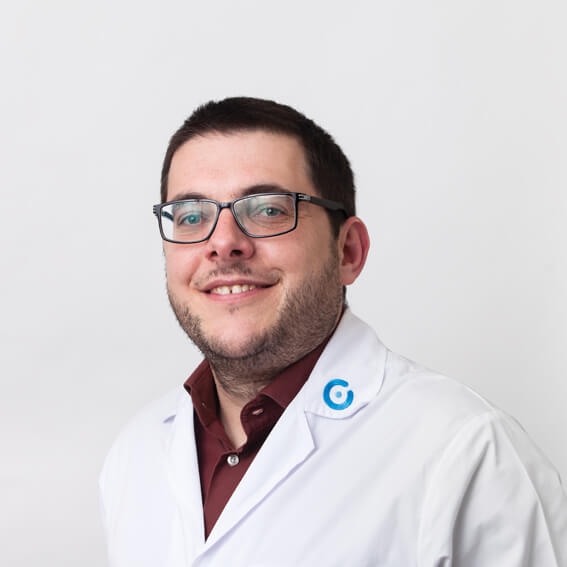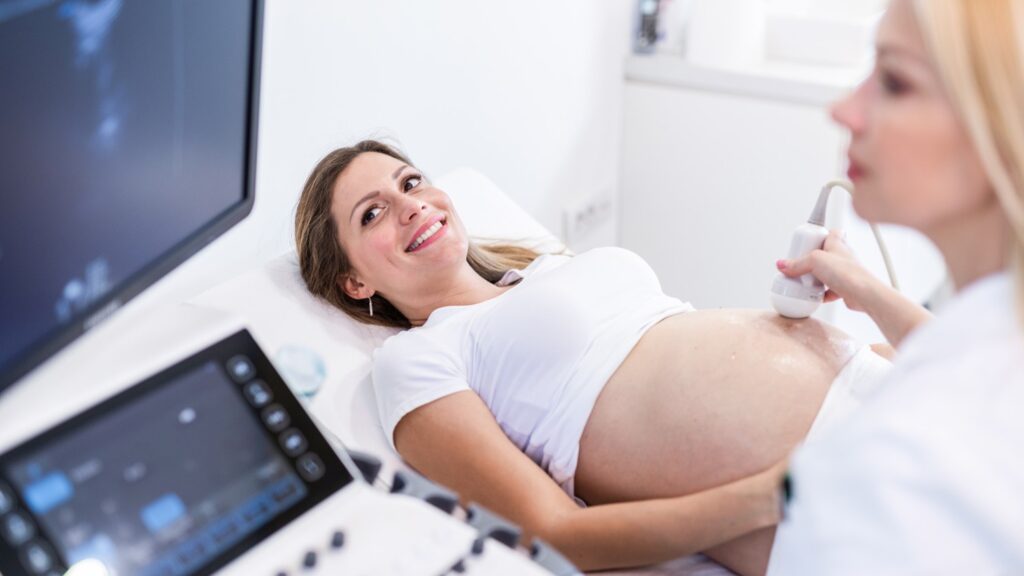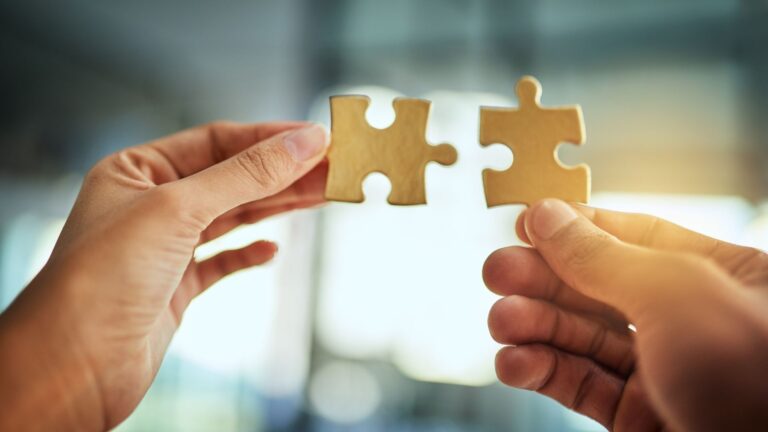Are you considering using an egg donor to have a child? Whether you are struggling to conceive with your own eggs or are concerned about passing genetic conditions to your future offspring, using an egg donor can be a promising path to building your family. But with such an important decision, where do you start?
You definitely want to consider a country with top-notch medical facilities, a supportive legal framework, and a diverse selection of open-ID or non-anonymous egg donors. Portugal ticks all these boxes, making it an excellent choice for people looking to explore the donor route. We chatted with Dr. Vladimiro Silva, the Scientific Director of Ferticentro, a world-class fertility clinic located in Coimbra, Portugal, about everything you need to know.

What is Egg Donation?
Egg donation is a beautiful way to help others start or expand their families.
Dr. Silva puts it simply:
“It’s when a woman donates her eggs to help another person or couple conceive. The donor takes some medications to encourage her ovaries to produce multiple eggs. These eggs are then collected in a minor procedure and fertilised with sperm in a lab. The embryos created are transferred to the recipient’s uterus, offering them the chance to have a child.”
Who Might Consider Egg Donation?
This option is often considered by women over 42 or those who haven’t had success with their own eggs after multiple tries. As women age, especially past 42, the number and quality of their eggs can decrease, which can lead to more challenges in getting pregnant or staying pregnant. Other reasons might include a low ovarian reserve or no ovarian function due to conditions like primary ovarian failure, premature ovarian failure, menopause, or surgery on the ovaries. For some, repeated IVF failures may occur due to various factors, such as poor response to treatment, low quality of eggs or embryos, issues with fertilisation, or recurrent miscarriages.
By choosing egg donation, these women can have a higher chance of achieving a successful pregnancy and starting or growing their family.
When deciding where to undergo treatment, there are several factors to consider. Let’s take a deeper dive.
Choose a Country with Supportive IVF Laws
Although laws may not be the first thing you think about when considering IVF with egg donation, it’s hugely important to undergo treatment in a country with a structured and transparent legal framework. The last thing you want is to encounter legal complications or ethical issues that could jeopardise your treatment or the well-being of your future child.
Clear laws mean that you, as prospective parents, can proceed with confidence, knowing that the process is well-regulated, transparent and ethical. This clarity helps in understanding your rights and obligations, making the journey smoother and less stressful.
Portugal’s Legal Framework
Who can donate eggs?
Women aged 18-34 can donate eggs after passing strict medical and psychological screenings to ensure they are fit for donation. These requirements make sure that only healthy and mentally prepared women can donate eggs. This reduces health risks for both the donor and the recipient and increases the chances of a successful pregnancy and healthy baby.
How many times can they donate?
Dr. Silva explains that in Portugal, a donor can only donate her eggs four times, with at least a three-month interval in between each donation.
“This law is in place to prioritise the health and safety of our donors by preventing excessive hormonal stimulation and repeated egg retrieval procedures, which can pose health risks if done too often”.
The 4 donations limit helps to maintain genetic diversity and prevent the chance of children from the same donor unknowingly meeting and having children together, which could lead to genetic issues.
Who can receive eggs?
In Portugal, egg donation is an inclusive option available to heterosexual couples, single women, and lesbian couples up to the female age of 50. This inclusivity ensures that people from diverse family structures can get the support they need to build their families.
Techniques used: In Portugal, you can use various advanced techniques in your egg donation procedure, including:
- Standard IVF: Fertilising donor eggs with your partner’s sperm.
- ICSI: Injecting a single sperm directly into the egg (this is a good option if your partner has male infertility factors).
- Double donation: Using both donor eggs and donor sperm, ideal for cases where both partners have fertility issues, lesbians or single women
Open-ID or non-anonymous donations: Portuguese law mandates that egg donation is non-anonymous. It means that, since the revision of the law in 2018, children born from donor eggs have the right to know the identity of their donor once they turn 18. This access, guaranteed by the state for 75 years, makes it easier to discuss your family’s origins and allows your child to learn about their donor’s medical history and other important information.
Ethics and Respect
As you can see, having these regulations in place makes sure that egg donation is done ethically, respecting the dignity and autonomy of the donors while ensuring that you get top-notch care and treatment. Ethical guidelines also prevent exploitation and make sure donations are voluntary and well-informed.
What’s the Deal with Open-ID Donations?
Open-ID donation, where donor-conceived individuals can find out the identity of their donor, has become a big deal for several reasons:
- Understanding their identity
A lot of donor-conceived people really want to know where they come from. Being able to access information about their donor can help them feel more complete and reduce feelings of uncertainty about their background. - Health and genetics
Knowing their donor’s medical history is super important for managing health risks. If they know about any genetic conditions or illnesses in the donor’s family, they can take steps to stay healthy. - Being open and honest
More and more, people think that being transparent about donor conception is the right thing to do. Open-ID donations align with values of honesty and respecting the donor-conceived person’s right to know their origins. - Avoiding accidental relationships
Knowing the donor’s identity helps prevent accidental relationships between donor-conceived half-siblings. This can avoid genetic issues that might happen if they unknowingly had children together. - Legal and social changes
Many countries are moving towards or have already made laws for open-ID donation. This reflects a growing understanding that donor-conceived people have a right to know where they come from. - Building trust
Open-ID donations can help build trust in the fertility treatment process. Parents may feel better knowing that their kids can learn about their genetic origins if they want to.
In a nutshell, open-ID donation supports the well-being and rights of donor-conceived individuals, making the process more transparent and ethical for everyone involved.
What Information Do You Get About the Donor?
In Portugal, recipients of egg donations can get a pretty good amount of information about their donors, while still respecting the donor’s privacy. Here’s what kind of info you can expect to get about your egg donor:
Basic information
- Physical traits: You’ll find out about the donor’s height, weight, hair colour, eye colour, and skin tone.
- Age: You’ll know how old the donor was at the time of the donation.
- Blood type: The donor’s blood type will be provided.
Medical history
- Health background: You’ll get a summary of the donor’s medical history, including any known hereditary diseases. This is super important for understanding any potential genetic risks.
Educational and occupational background
- Education and job: You’ll receive general information about the donor’s education level and profession, which can give you some insights into their lifestyle and socio-economic background.
Extended profiles (optional)
- Additional details: Sometimes, donors might choose to provide more detailed profiles, including information about their personality, interests, family background, and lifestyle. This isn’t mandatory but can be really helpful if the donor is open to sharing more about themselves.
This setup helps prospective parents feel more informed and reassured about the process, and it also means that children born from donor gametes have the option to learn about their genetic origins when they’re older. This transparency supports ethical practices and can be crucial for the psychological well-being of donor-conceived individuals.
Egg Donation vs. Double Donation vs. Embryo Adoption in IVF
Understanding the various options in fertility treatments can be a bit overwhelming. Let’s break down the differences between egg donation, double donation, and embryo adoption.
Egg donation
Egg donation involves a woman (the donor) providing her eggs to another person or couple (the recipients) to help them conceive. The donor’s eggs are fertilised with the recipient’s partner’s sperm or donor sperm in a lab, and the resulting embryos are then transferred to the recipient’s uterus.
Who it’s for:
- Women with poor egg quality or low ovarian reserve
- Women with genetic disorders they don’t want to pass on
- Older women whose eggs are less viable
Process:
- Stimulation and retrieval: The donor takes medication to stimulate her ovaries to produce multiple eggs. These eggs are then retrieved through a minor surgical procedure.
- Fertilisation: The retrieved eggs are fertilised with sperm in a lab and subsequently cultured for 5 to 6 days
- Transfer: The resulting embryos are transferred to the recipient’s uterus to achieve pregnancy.
Key Points:
- Allows the recipient to carry and give birth to the child
- The child will have a genetic connection to the donor and your male partner
Double Donation
Double donation involves using both donor eggs and donor sperm to create embryos, which are then transferred to the recipient’s uterus. This is a great option for couples where both partners face fertility issues, or for single women and same-sex couples.
Who it’s for:
- Couples where both partners have fertility issues
- Single women who need both an egg and sperm donor
- Same-sex couples needing both egg and sperm donation
Process:
- Selection of donors: Both egg and sperm donors are selected based on the recipient’s preferences and medical advice.
- Fertilisation: Donor eggs are fertilised with donor sperm in a lab.
- Transfer: The embryos are then transferred to the recipient’s uterus.
Key Points:
- Neither of the intended parents has a genetic link to the child
- Provides a solution for a wide range of fertility challenges
Embryo Adoption
Embryo adoption involves adopting embryos that were created by other couples who have completed their own IVF treatments and have extra embryos they don’t plan to use. These donated embryos are transferred to the recipient’s uterus.
Who it’s for:
- Couples or individuals who cannot produce viable embryos
- Those who want to experience pregnancy and childbirth but are open to adoption
Process:
- Matching with donors: Recipients are matched with donors who have embryos available for adoption.
- Legal and medical preparation: Legal agreements are signed, and recipients undergo medical preparation for the transfer.
- Transfer: The adopted embryos are transferred to the recipient’s uterus.
Key Points:
- The child will not be genetically related to the recipient
- Can be a more affordable option compared to creating new embryos
- Allows embryos a chance at life that might otherwise be unused
Who Are the Egg Donors?
Egg donors in Portugal come from a mix of backgrounds, giving recipients plenty of genetic diversity to choose from. Most donors are Portuguese, but you’ll also find donors from various ethnicities, thanks to the country’s multicultural vibe. They come from all over Portugal, so you have a broad selection to match your needs. This means you can feel confident in finding a donor who closely matches your desired appearance and genetic traits.
Generally, egg donors in Portugal are young women motivated by both the desire to help others and the financial compensation. Most donors are between 20 and 30 years old, in good health, and free of significant medical or genetic issues. Many are university students or young professionals. Some have their own children or have proven fertility, but that’s not a must.
The qualification process for egg donors in Portugal is pretty thorough to ensure everything goes smoothly. Donors go through comprehensive health checks, including blood tests, genetic screenings, and physical exams. They also have psychological evaluations to make sure they are mentally and emotionally prepared for the donation process. The process includes informed consent and counselling sessions to explain everything, including the procedure, risks, and implications. There’s also an assessment of lifestyle factors like diet, exercise, and substance use. This rigorous process ensures that donors are well-qualified and that the donation is safe and effective for everyone involved
Do Donors Get Paid for Their Eggs?
In Portugal, egg donation is a voluntary and altruistic act. But to make sure donors aren’t out of pocket, they receive financial compensation of €1,019. This payment is set annually by the State and it is designed to cover any expenses or losses they might face from the donation process.
Donors get compensated for their time and effort, ensuring the whole experience is fair and ethical. The money covers various things like the time spent on medical screenings, the donation procedure itself, and the recovery period. It also takes care of travel expenses to and from the clinic and any lost wages if they need to take time off work.
This way, while the spirit of the donation remains generous and altruistic, donors are not left financially disadvantaged for their kind act.
A Closer Look at Success Rates of IVF with Egg Donation
The fact is: IVF with egg donation is one of the most successful assisted reproduction treatments available, helping many women become mothers when using their own eggs isn’t an option.
Why it Works so Well
So why is IVF with egg donation so successful?
According to Dr. Silva,
“the high success rate is primarily because the eggs come from young, healthy women, which means they’re usually of excellent quality. You are basically fertilising and transferring the eggs of a 25-year-old (the average age of donors), which often increases the chances of getting pregnant on the first try”.
Number of attempts
Many women worry about how many tries it will take to achieve a pregnancy. Often, these women have already undergone several unsuccessful IVF cycles. The good news is that egg quality is the biggest factor, and donor eggs from women under 35, often under 30, ensure higher success rates.
Key factors for success
The success of IVF with donor eggs depends on several factors. The more embryos you have, the better your chances. Fresh eggs generally work slightly better than frozen ones, although both are good options. The quality of the sperm also matters, as male fertility issues can lower the success rate. It’s important that the recipient’s uterus is in good condition, and any problems should be addressed. Finally, the experience and expertise of the fertility clinic play a big role in achieving a successful outcome.
Is the Baby Mine?
Many women worry that using donor eggs will make the child feel less like their own, but knowing about epigenetics can be really reassuring. It shows how your body and environment during pregnancy play a big role in shaping your baby’s development and traits, making the connection feel even more special.
Dr. Silva explains:
“Epigenetics is a fascinating field that studies how the environment can influence the expression of genes, leading to unique traits and characteristics in babies. So, if you’re using donor eggs and worry about not sharing genetic material with your child, it’s important to know that your pregnancy will still have a profound impact. Your metabolism, diet, stress levels, and overall health during pregnancy can shape your baby’s development and future behaviour.”
It’s completely normal to feel a sense of loss about not sharing your DNA, but many women find that this feeling fades over time. What truly defines motherhood is the love, care, and experiences you share with your child. You’ll be the one nurturing, educating, and building memories with your little one. Women who become mothers via egg donation often find the experience just as rewarding and fulfilling as those who conceive naturally.
Remember, the donor may provide the genetic material, but you are the mother who will raise and love this child. Over time, the bond you create through everyday moments and shared experiences will far outweigh any initial concerns about genetics. Being a parent is about much more than DNA; it’s about the incredible journey of raising a child and the deep connection that forms along the way.

Egg Donation at Ferticentro
Ferticentro is renowned for its comprehensive and supportive approach to egg donation, boasting one of the largest and most diverse egg banks in Portugal. Here’s what you can expect from the egg donation IVF process at Ferticentro
- Medical consultation
In your initial consultation, your doctor will determine if donor involvement is advisable as part of your treatment plan.
- Consultation with our Donation Coordination Team
Our Donation Team will work with you to explain your options, understand what donor characteristics matter most to you, and help you find your ideal dono
- Donor proposal
Our Donation team will send you a donor profile that best fits your expressed preferences. This proposed donor will be reserved especially for you for a period of three working days from the date of receipt of these profiles.
- Donor confirmation
Once you have given your final confirmation to our Donation Team (within the 3 days window), your donor will be fully secured and we can start your treatment. If you aren’t happy with the donor, don’t worry, we will work with you to find your perfect match.
What You Can Expect
At Ferticentro, you’ll get comprehensive donor profiles, including details on physical and personality traits, education, hobbies, and aspirations. Your child’s privacy is a top priority—donors cannot contact your child and have no legal claims over them. Every donation is ethically sourced, with strict state control in real time over the number of donations each donor makes, ensuring clarity and accountability.
Ferticentro also provides thorough counselling for donors to prepare them for the possibility of being contacted by donor-conceived children in the future. Their genetic compatibility testing checks for shared gene mutations between the patient and donor, preventing genetic disorders in children. Plus, the dedicated donor coordinators are on hand to help you navigate the extensive database and find your ideal donor.
Ferticentro offers a range of packages with guaranteed blastocysts to suit different needs.
- The Standard package, priced at €7,500, includes a minimum of 2 guaranteed blastocysts.
- The Premium package offers at least 3 guaranteed blastocysts for €8,500.
- For those seeking more, the Exclusive package provides a minimum of 5 guaranteed blastocysts at €11,950.
- The Platinum package, which costs €17,500, includes a full refund if you don’t take home a baby.
All prices cover one embryo transfer but exclude medication, blood tests, storage, maintenance of embryos, and donor sperm purchase if needed. The initial consultation fee is €110, and additional frozen embryo transfers after the first are not included.
Conclusion
Navigating egg donation can feel overwhelming, but knowing the legal details, availability, and processes involved can really help. Portugal is a great choice thanks to its supportive laws, diverse donor pool, and excellent medical facilities. With the help of a knowledgeable fertility specialist and the comprehensive care from clinics like Ferticentro, you can start your fertility journey with confidence and hope. You can get in touch with the team at Ferticentro through the contact form in their clinic profile here.
Table of Contents
- 1 What is Egg Donation?
- 2 Who Might Consider Egg Donation?
- 3 Choose a Country with Supportive IVF Laws
- 4 Portugal’s Legal Framework
- 5 Ethics and Respect
- 6 What’s the Deal with Open-ID Donations?
- 7 What Information Do You Get About the Donor?
- 8 Egg Donation vs. Double Donation vs. Embryo Adoption in IVF
- 9 Double Donation
- 10 Embryo Adoption
- 11 Who Are the Egg Donors?
- 12 Do Donors Get Paid for Their Eggs?
- 13 A Closer Look at Success Rates of IVF with Egg Donation
- 14 Is the Baby Mine?
- 15 Egg Donation at Ferticentro
- 16 What You Can Expect





